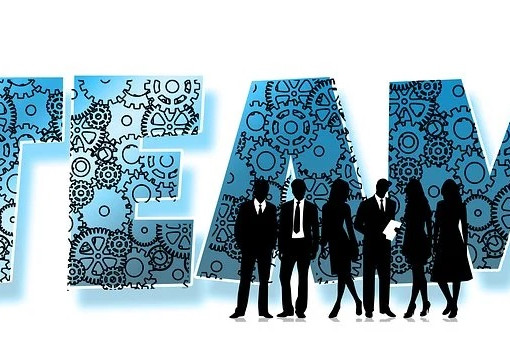Have you ever analyzed whether all or some of the HR functions should be outsourced? If you are the expert in the utilization and management of the human resources of your business, shouldn’t this be a logical assessment? Or, should we wait for the suggestion to come from others in the C Suite?
Outsourcing is a subject HR professionals will talk about when discussing other departments and functions of the organization but won’t apply to HR. We see our department as critical to the culture and “people” function and no outside firm could do as well.
On a personal level, we are sure that outsourcing means getting someone else to do what we are now doing. The assumption is that my CHRO position will go away if the HR function is outsourced.
Not so fast. Outsourcing some or all HR functions may be the best thing for the organization and for the HR leader personally.
Healthcare is embracing outsourcing
It has been common for many small and midsized healthcare organizations to outsource some or all HR functions. Payroll is the most common with benefits following closely. It makes sense and is cost effective for smaller organizations.
What is surprising is that larger hospitals and regional systems are embracing the idea of outsourcing the entire HR function. I recently came into contact with a regional healthcare system that has 3 acute care facilities and over 4,000 employees. I was surprised that they recently outsourced the entire HR function. Benefits, compensation, employee relations, recruitment, and training are now managed by a third party and all HR staff members are employed by this outside firm.
Outsourcing has become a big subject for hospitals and other healthcare organizations. Part of this is due to the pandemic and part of it is due to cost pressures. Generally, nonclinical services are being outsourced. These include environmental services, housekeeping, billing, revenue cycle management, risk management, etc.
Even clinical areas are being considered. Already, most hospitals contract for ED physician services and Anesthesia, but some nursing functions are being included.
I won’t bore you with a lot of stats but here are the highlights:
- A study of more than 500 hospitals and inpatient organizations found 90% of health executives are exploring cost savings by teaming with third-party vendors
- The global healthcare outsourcing market is tipped to reach $312 billion by 2025
- The U.S. healthcare outsourcing market is expected to reach $66 billion by 2025
- 98% of C-level executives are actively considering adopting outsourcing or have already done so
- More than 90% of U.S. hospitals have outsourced at least one of their processes
HR is not immune. Already some of the HR functions may be done by outside providers. Some benefit administration and recruitment activities are routinely done by third parties. But now, it is becoming more common for the entire HR function to be outsourced.
This does not mean that all the employees are leased from a third party, but that the HR function is managed by an ASO (Administrative Services Organization). In this model, employees are still employed by the healthcare organization and the ASO administers the HR functions.
It is possible that the HR staff may be employed by the healthcare organization but it is probably most common that the HR staff are employed by the ASO. This makes it easier for ASO to manage and is preferable to the healthcare organization.
What would be the reasons for outsourcing HR?
There are several good reasons for the HR function to be outsourced:
- Cost efficiency. Outsourcing can often be cheaper than maintaining a full time in-house HR team. In fact, the National Association of Professional Employee Organizations found that the average annual ROI from using a third party provider was 27.2%.
- Compliance expertise: Outsourced firms stay updated on complex employment laws minimizing risks.
- Specialized skills: Outside firms can tap into a wider talent pool with specialized knowledge in the HR functional areas.
- Scalability: Organizations can easily adjust HR needs based upon workforce fluctuations by scaling up or down outsourced services.
- Reduced administrative burden: Many time-consuming tasks are outsourced and the responsibility of the outside firm.
- Risk Management: Outsourcing can help mitigate risks associated with employment litigation by ensuring proper adherence to employment laws..
Are there potential drawbacks to outsourcing HR?
There are some challenges that need to be considered when outsourcing the HR function:
- Less control: The organization may have less control of HR decisions when using an external provider. This is usually something that should be addressed in the initial contract or agreement.
- Communication challenges: Maintaining clear communication with an outside provider is critical. Decision authority needs to be clearly defined
- Cultural fit: An external provider needs to fully understand the company’s culture and specific needs.
The personal concerns of HR professionals
The number one concern of HR professionals is whether outsourcing HR will result in loss of their jobs. In many cases, the HR staff will stay employed by the healthcare provider. If the entire HR department is to be outsourced, the usual approach is to move the HR staff to the external provider’s payroll.
The second concern is that there will be significant loss or change in benefits for these employees. Obviously, there may be changes with a different employer but the general practice is to mirror existing seniority and benefits. It is very common for the HR employees to be moved to the new employer with intact seniority and PTO accruals.
The new external employer can also offer exciting opportunities for HR employees. They may have access to increased technology, streamlined processes, and increase depth-of-knowledge on HR challenges.
On a personal level, there will be increased opportunities for advancement. The healthcare organization only had one HR department. The external HR provider is probably managing multiple HR departments in multiple locations. There is increase opportunity for skill development, advancement and relocation.
What about the current CHRO?
The CHRO position may be the one most affected by outsourcing. The CHRO may have a title of vice president or director, or even manager. As the top person in HR, s/he is rightly seen as being responsible for the current performance of the HR function.
Are you, as an individual in this role, in danger of losing your position? Maybe yes, maybe no. Outsourcing HR could be done for the best of reasons and the healthcare organization may want you to continue. The other option is that the organization wants you gone and this is an easy way to accomplish that.
Here are some questions that may provide clues:
- Do you have a good relationship with the CEO and other members of the C Suite? If leadership respects you and the job being done, it is more likely that you would be asked to remain. However, if some powerful leaders (CFO and CNO specifically) are critical of the performance of HR then it may be more likely that you would be replaced.
- What is the perception of HR throughout the organization? You should have an awareness of the general opinion of HR. The employee satisfactions surveys should also give you a clue.
- Is there excessive litigation related to employment laws and regulations? This may show a lack of expertise in your leadership–or you may be getting the blame.
- Are there substandard outcomes in the execution of HR functions? Problems with benefit administration, recruitment backlogs, employee issues may be laid at your feet.
The bottom Line
Outsourcing some or all of the HR functions can be a positive for the organization and even the HR staff. After a few months, it generally becomes invisible to everyone in the organization.
The CHRO is at most risk. That person is most likely to remain when s/he is respected by management. If poor outcomes in HR are due to technology or processes, the outside vendor may bring solutions to those problems and the current CHRO may remain,
If the current CHRO does not remain, it is possible that s/he may have a position elsewhere in the external organization. If the current employment has not been the best experience and the CHRO is generally competent, the outside vendor can find an opportunity for them elsewhere.
However, if the current CHRO is a total screwup, my advice would be to start looking as soon as outsourcing is being considered!





